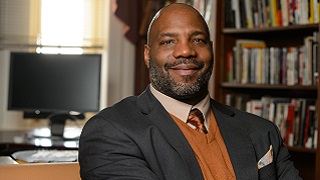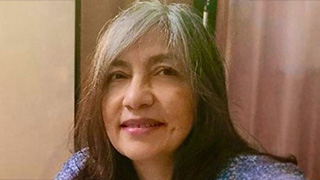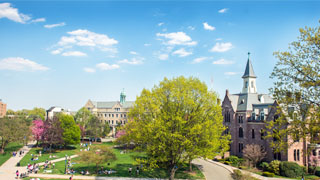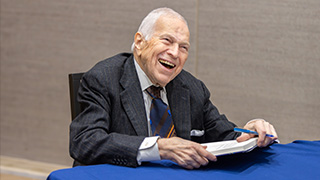Famed 'New Yorker' Comes to South Orange to Spotlight Racial Inequality and Social Justice
Wednesday, February 1, 2017

Born and raised in Queens, New York, Cobb is a respected historian and public intellectual who regularly writes on history, culture, politics and race. In addition to The New Yorker, his articles and essays have appeared in The Washington Post, The Daily Beast, Essence, Vibe, The Progressive and TheRoot.com. He also authored The Substance of Hope: Barack Obama & the Paradox of Progress (Bloomsbury 2010) and To the Break of Dawn: A Freestyle on the Hip Hop Aesthetic (NYU Press 2007), which was a finalist for the National Award for Arts Writing. His collection The Devil & Dave Chappelle and Other Essays (Thunder's Mouth Press) was published in 2007.
Cobb has also been a featured commentator on MSNBC, National Public Radio, CNN, Al-Jazeera, CBS News and a number of other national broadcast outlets.
As a precursor to Cobb's February 27th lecture, the Lewinson Center will also host a screening of the Frontline documentary Policing the Police, in which Cobb examines allegations involving the Newark Police Department. This will take place Tuesday, February 21, at 5 p.m. in the Nursing Amphitheater (Room 113).
Cobb's keynote speech will be the inaugural event for the Lewinson Center, which, in the words of Center director Leslie Bunnage, "will bring together faculty, students and policymakers to address the most critical issues facing working people today: issues of class, race, gender, access, law and economic policy." The Center was named for the late Seton Hall history professor Edwin R. Lewinson, who was a groundbreaking scholar-activist in civil, disability and labor rights. "Born to blindness, Lewinson and his seeing eye dog were a constant presence in the struggle for equality, workers' rights and the rights of the disabled over a span of five decades," says history professor Larry Greene.





